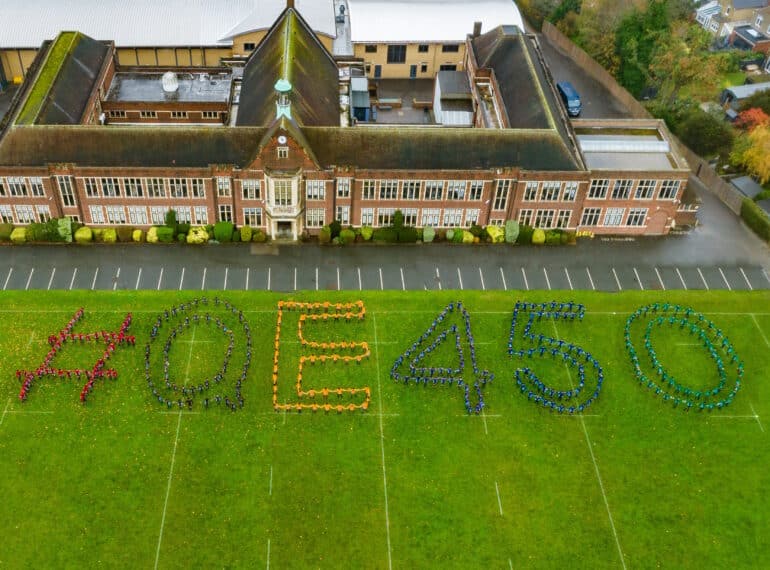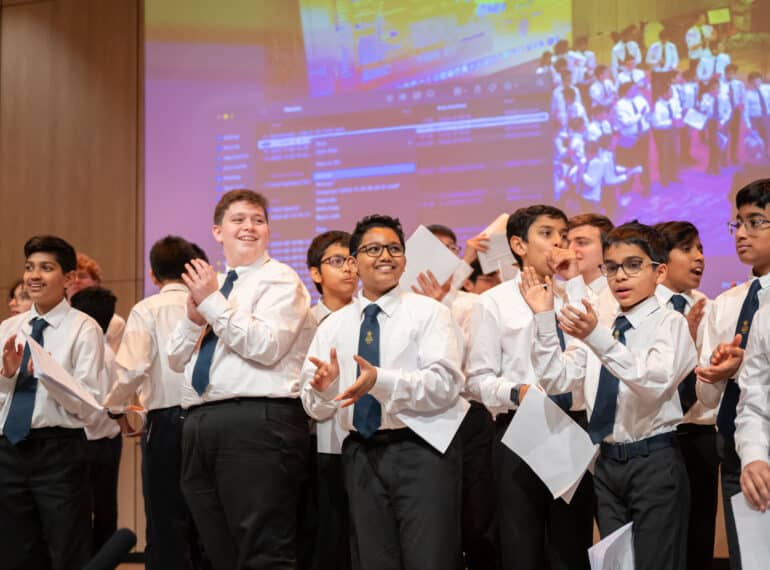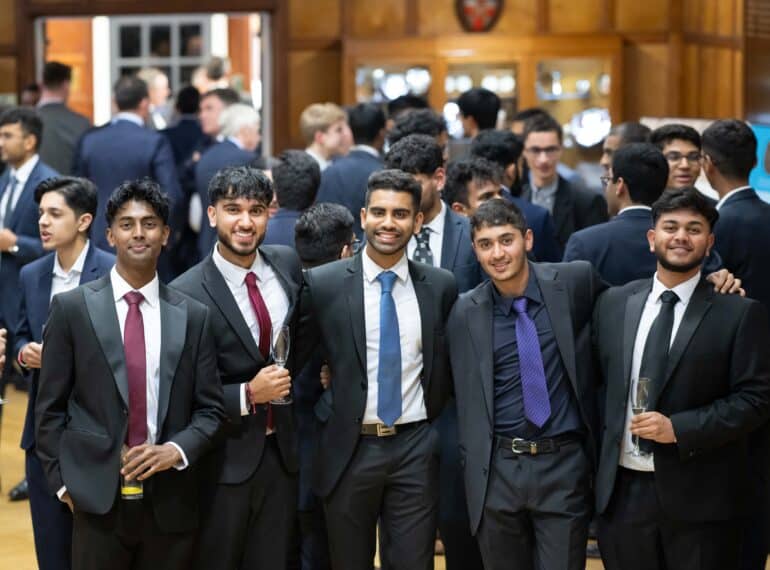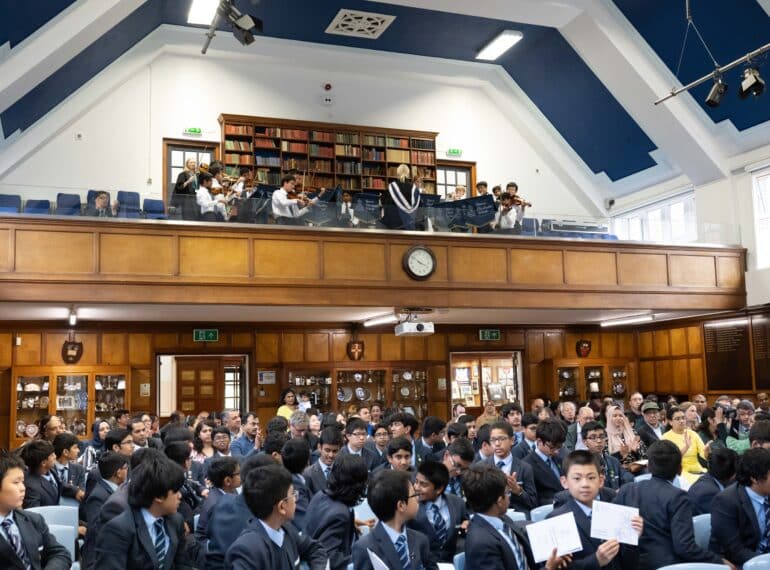
Pupils from across the first three years of Queen Elizabeth’s School had their achievements recognised and lauded at the 2024 Junior Awards.
At an afternoon ceremony held in the Main School Hall, boys gathered with their families and with staff and dignitaries to celebrate.
There were prizes for all the classroom subjects, as well as House prizes, prizes for commitment, and prizes for extra-curricular activities, such as debating & public speaking, and chess. Music prizewinners from Years 7, 8 and 9 punctuated the programme with a series of musical interludes. A vote of thanks was given by the Year 7 debating & public speaking prizewinner, Aaron Singh.
Headmaster Neil Enright spoke about how the prizewinners are seen by others; guest of honour Asif Ahmed (OE 1997–2004) about how they see themselves; and the Mayor of Barnet, Councillor Tony Vourou, about how the whole School is seen in the borough: there is, he said, considerable pride in QE and the achievements of its students.
In his introduction to the ceremony, Mr Enright told the boys: “These awards are a signal that you are doing very well indeed and that we see in you qualities that set a positive example for others in the School – so many of whom are also very talented and hard working.”
He spoke about the butterfly effect, which argues that small things can end up having significant impacts, citing the famous story of a butterfly flapping its wings in one part of the world and a hurricane developing in another.
He urged the boys to small acts of kindness – “a quiet, unshowy altruism” – to benefit those around them, whether at School or elsewhere.
“With your abilities, many of you may go on to make the discoveries, find the cures, engineer the projects, secure the investments of the future. There should be no ceiling to your aspirations. But, with certainty, everyone here and in our Elizabethan community can do the little things in daily life so that things are better for others, or at least,” he added, quoting from George Eliot’s Middlemarch, “that things are ‘not so ill as they might have otherwise been’.”
Guest of honour Asif leads the accounting and advisory team at major accountancy firm Cooper Parry which focuses on venture capital-backed founders of companies. He is also the author of best-selling book The Finance Playbook for Entrepreneurs. An accomplished sportsman, he is now part of the Board at Middlesex County Cricket Club.
In his speech, he included many biographical elements from his Schooldays, mentioning being made form captain in Year 7, playing cricket for Middlesex and rugby for Hertfordshire, being appointed a Lieutenant, and achieving good grades.
“At all those milestones, including being appointed Lieutenant, I never shook the feeling of looking around me and thinking: ‘When will you get found out, you absolute fraud?’” he said.
After leaving School, while still training for his professional qualifications with large accountancy firm PwC, his father was diagnosed with a terminal illness. “I unexpectedly found myself in a position at 22 years old, looking after his very small accounting firm. There I was, no clue in the world, with nothing and really no-one to rely upon. The imposter syndrome kicked in again.”
Over time, however, Asif succeeded in building up the business, wrote his best-selling book, and was approached by a much larger firm with an offer to buy his company. “Today, I am a Partner of that firm and I lead the largest team and portfolio of high-growth technology businesses in the country, working with the best entrepreneurs in this land.”
He told the boys all this, because, he said: “I’ve come to realise that imposter syndrome is the world’s way of telling you that other people see something in you that you yourself can’t see…yet. When you are rewarded, you absolutely must savour it, hold it tightly and mark it out as one step closer to fulfilling your destiny.”
The afternoon’s music was a varied selection – including Stravinsky, Gershwin and Mozart alongside a piece by the rather less well-known Polish composer, Szymanowski.
Because of the inclement weather, the reception, normally held on Stapylton Field, took place this year in the Mayes Atrium.
- Click on the thumbnails below to view the images at full size.

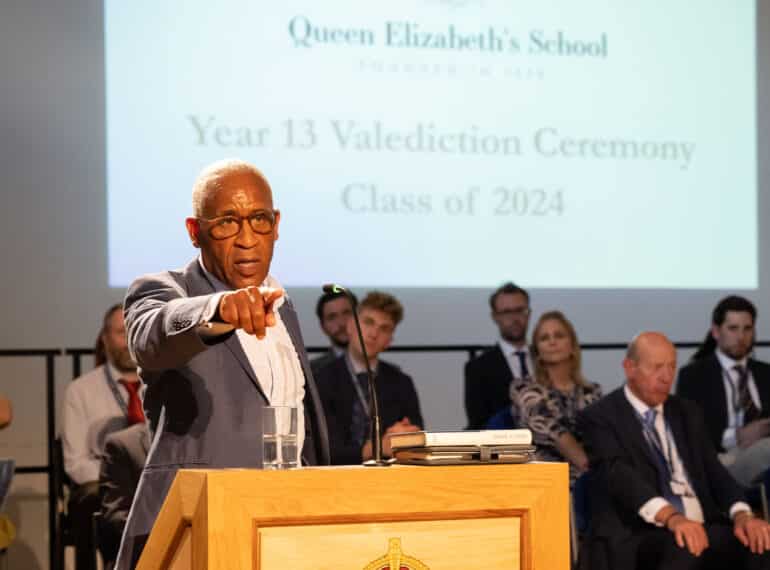

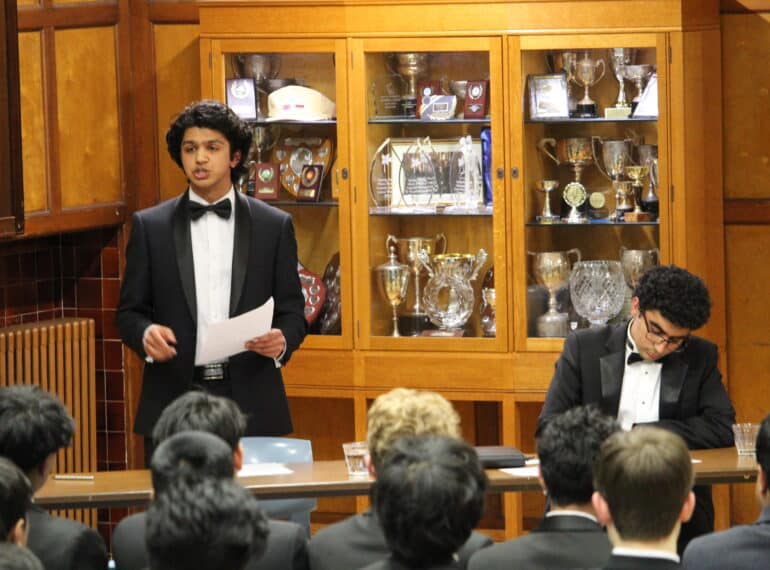
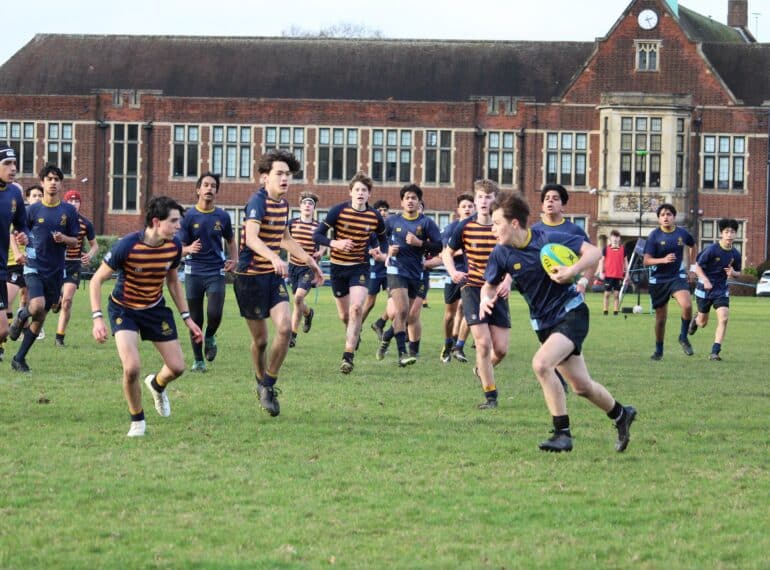
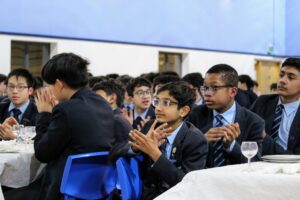 Another recent highlight was the first-ever QE Rugby Dinner, which saw top players from all year groups come together to celebrate their love of the game.
Another recent highlight was the first-ever QE Rugby Dinner, which saw top players from all year groups come together to celebrate their love of the game.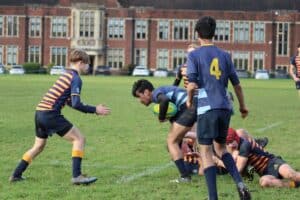 The U15s stormed through three rounds of the National Bowl to reach a fifth-round home game against Emanuel School in Battersea. With no first round played, they had kicked off their campaign by securing a convincing 36-7 win in October against Hampstead’s University College School.
The U15s stormed through three rounds of the National Bowl to reach a fifth-round home game against Emanuel School in Battersea. With no first round played, they had kicked off their campaign by securing a convincing 36-7 win in October against Hampstead’s University College School.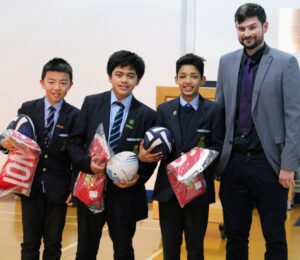 There was some consolation for several of the U15 backline when they found themselves named in the QE Team of the Year, which was announced at the inaugural Rugby Dinner in the Shearly Hall.
There was some consolation for several of the U15 backline when they found themselves named in the QE Team of the Year, which was announced at the inaugural Rugby Dinner in the Shearly Hall.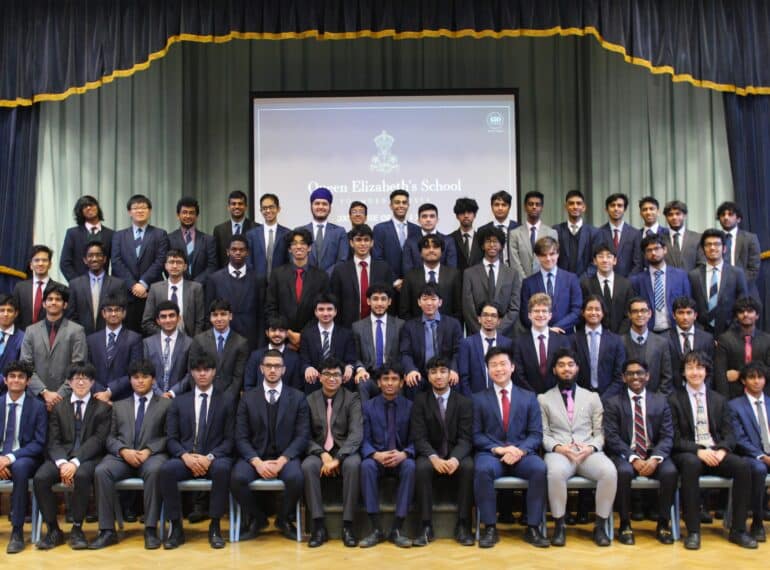
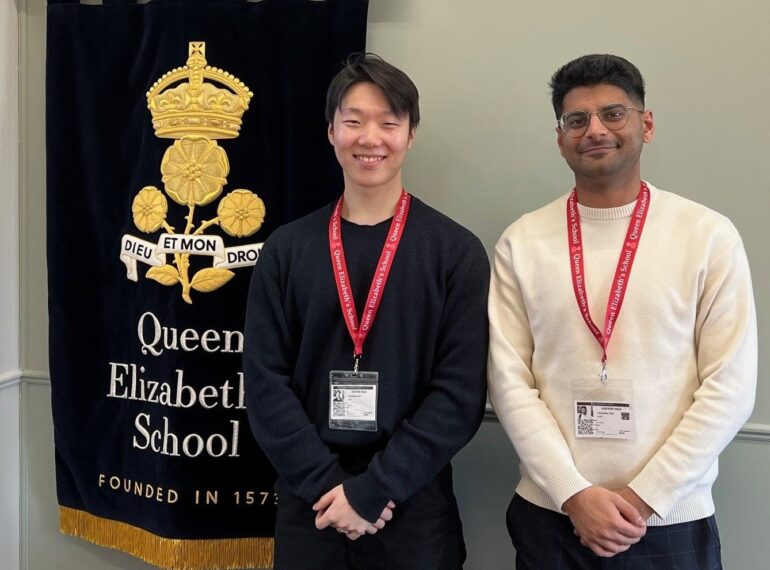
 They only started working on the business in August, yet already it has won funding and been accepted into Microsoft’s start-up programme.
They only started working on the business in August, yet already it has won funding and been accepted into Microsoft’s start-up programme.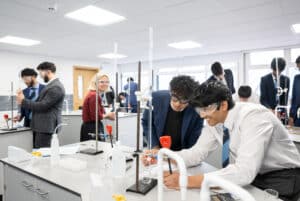 “Both Dr Irvine and Dr Ridge seemed quite impressed and were eager to start using Medly as a resource to save time and understand where their students don’t perform well.”
“Both Dr Irvine and Dr Ridge seemed quite impressed and were eager to start using Medly as a resource to save time and understand where their students don’t perform well.”